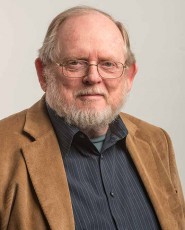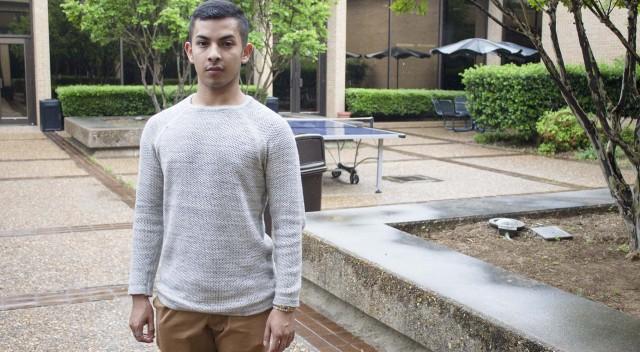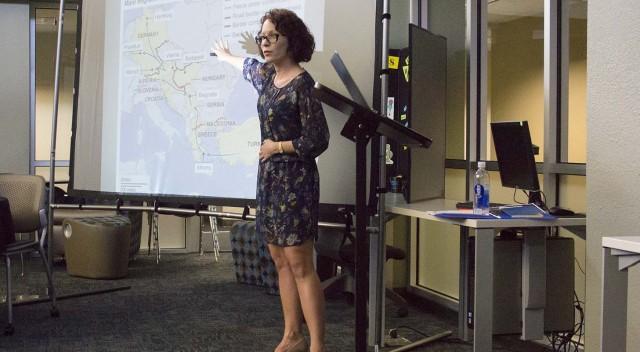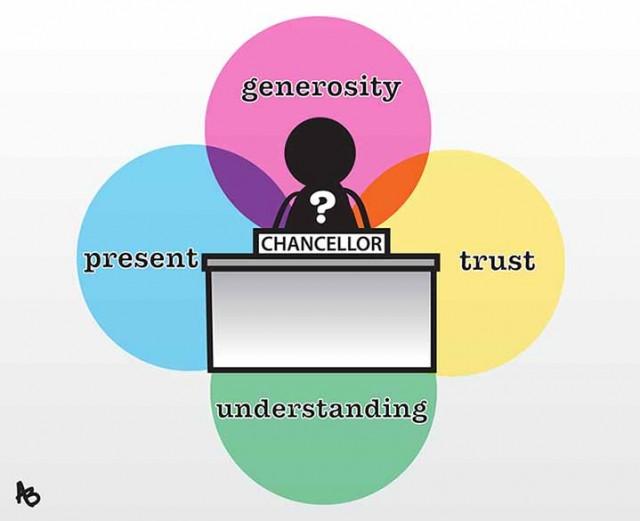By Summa Aholo/ reporter

Even published authors start with rejection, a writer of nine novels and one collection of short stories told NE students April 6.
“I wrote my first novel when I was 14 years old,” said Robert Bausch, this year’s Living Literature featured author.
However, his English teacher gave him a failing grade on that novel, so he turned around the next week and submitted it to his history teacher, Bausch said. That teacher commended him on his writing and urged him to get the novel published.
Bausch said he told that particular story to illustrate that even when people knock one’s work, teachers included, one should get back up and continue.
Although his main purpose was to explain the life of a writer: the ups, the downs, the rejections and the praise. He stressed “never stop writing” many times throughout his lecture. Bausch also gave tips on getting started with the writing process and pushing through even when in doubt.
“When you doubt yourself, that’s your talent talking,” he said. “Your talent is telling you no. No, this isn’t good enough. It’s OK to listen to it. Just don’t let it paralyze you.”
Bausch said he found the cure to writers’ block, which he shared with his audience.
“Turn off the screen,” he said. “If you can’t see it, you can’t judge it.”
Persistence, dedication and love of that craft were three principles he conveyed to the audience.
“I am a writer,” he said. “That’s what I do. I write.”
Bausch said he self-published The Legend of Jesse Smoke on Amazon. When he signed on with another publishing company, he submitted that same book, which will be printed in the fall.
He held up an advanced reading copy of the book he had self-published to illustrate that persistence and dedication can pay off.
A message Bausch kept touching on is that people should be passionate about something, pursue it and not give up on the dreams that are innately inside of them.
“I have never met a really fine writer who thought she was,” he said, mentioning Joyce Carol Oates, John Updike and Charlie Baxter among the fine writers that he has known.
“In order to write very well, you have to be willing to write badly,” he said.
That begins with a draft.
“The absolute first step no matter what you are trying to write is to generate a text,” he said. “Get it out of your mind and on the page so that you can look at it. Then, you can worry about that other stuff. That’s what writing is — typing first, writing later.”
When he was growing up, Bausch found letters from his great-grandfather to his great-grandmother in his grandmother’s attic, correlating this story to the history of literature.
“Why live just one ordinary, mundane life?” he asked when referring to how books can take someone around the world and the knowledge gleaned from reading books can connect human beings between generations.
An audience member asked if he writes for himself or for the reader.
“I do not write for an audience,” he said. “I write for people who may live 100 years from now. I want them to know what it’s like to be alive here and now.”
Throughout his lecture, Bausch gave tips on improving the writing process,
“Just type because when you’re writing, the first step is typing,” he said.




























